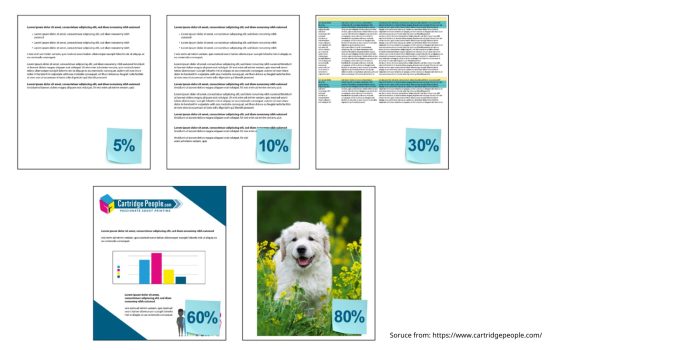Mr singh would like drug coverage – Mr. Singh’s desire for comprehensive drug coverage embarks us on a quest to explore the intricacies of healthcare, financial constraints, and insurance. Join us as we delve into his specific health needs, compare available coverage options, and empower him with the knowledge to make an informed decision that aligns with his unique circumstances.
Through a comprehensive analysis of benefits, limitations, premiums, and out-of-pocket costs, we aim to provide Mr. Singh with a clear understanding of the healthcare landscape. By evaluating drug coverage plans against key factors such as medication coverage, pharmacy networks, and customer service, we empower him to choose a plan that seamlessly integrates with his lifestyle and health goals.
Mr. Singh’s Drug Coverage Needs
Mr. Singh is a 65-year-old man with a history of diabetes and hypertension. He takes several medications to manage his conditions, including insulin, metformin, and lisinopril. Mr. Singh has Medicare Part A and Part B, but he does not have Part D prescription drug coverage.
He is on a fixed income and cannot afford to pay for his medications out of pocket.
Health Conditions and Medication Requirements
Mr. Singh’s diabetes requires him to take insulin and metformin. His hypertension is managed with lisinopril. He also takes a daily aspirin to prevent heart disease.
Financial Constraints and Insurance Status
Mr. Singh is on a fixed income and cannot afford to pay for his medications out of pocket. He has Medicare Part A and Part B, but he does not have Part D prescription drug coverage.
Available Drug Coverage Options

There are several different types of drug coverage available to Mr. Singh. These include:
- Medicare Part D
- Medicaid
- Private insurance
- Employer-sponsored insurance
Medicare Part D
Medicare Part D is a prescription drug coverage program offered by private insurance companies. It is available to people who have Medicare Part A and Part B. Medicare Part D plans have different premiums, deductibles, and copays. They also have different formularies, which are lists of covered drugs.
Medicaid
Medicaid is a health insurance program for low-income individuals and families. It covers a wide range of health services, including prescription drugs. Medicaid is administered by each state, so the eligibility requirements and benefits vary from state to state.
Private Insurance, Mr singh would like drug coverage
Private insurance is another option for drug coverage. Private insurance plans can be purchased through an employer or directly from an insurance company. Private insurance plans have different premiums, deductibles, and copays. They also have different formularies.
Employer-Sponsored Insurance
Employer-sponsored insurance is another option for drug coverage. Employer-sponsored insurance plans are offered by employers to their employees. Employer-sponsored insurance plans have different premiums, deductibles, and copays. They also have different formularies.
Evaluating Drug Coverage Plans: Mr Singh Would Like Drug Coverage

When evaluating drug coverage plans, Mr. Singh should consider the following factors:
- Coverage for specific medications
- Out-of-pocket costs
- Pharmacy network
- Customer service
| Factor | Description |
|---|---|
| Coverage for specific medications | Mr. Singh should make sure that the plan covers all of the medications he takes. |
| Out-of-pocket costs | Mr. Singh should consider the premiums, deductibles, and copays associated with each plan. |
| Pharmacy network | Mr. Singh should make sure that the plan has a pharmacy network that includes his preferred pharmacy. |
| Customer service | Mr. Singh should consider the customer service ratings of each plan. |
Making an Informed Decision
Once Mr. Singh has considered all of the factors, he can make an informed decision about which drug coverage plan is right for him. He should weigh the pros and cons of each plan and choose the plan that best meets his needs and circumstances.
Mr. Singh should also consider his future health needs. If he is likely to need more medications in the future, he may want to choose a plan with a lower premium and higher out-of-pocket costs. If he is healthy and only takes a few medications, he may want to choose a plan with a higher premium and lower out-of-pocket costs.
Enrolling in a Drug Coverage Plan

Once Mr. Singh has chosen a drug coverage plan, he can enroll in the plan by contacting the insurance company. The insurance company will provide Mr. Singh with an application form. Mr.
Singh will need to complete the application form and return it to the insurance company. The insurance company will then process the application and issue Mr. Singh a policy.
Mr. Singh’s coverage will begin on the date that is specified on the policy. Mr. Singh will need to pay the premiums for his coverage on a monthly basis. Mr.
Singh will also need to pay any deductibles or copays that are associated with his coverage.
Essential Questionnaire
What factors should Mr. Singh consider when evaluating drug coverage plans?
Mr. Singh should consider coverage for specific medications, out-of-pocket costs, pharmacy network, customer service, and any additional benefits or services offered by the plan.
How can Mr. Singh compare the benefits and limitations of different drug coverage options?
Mr. Singh can compare the benefits and limitations of different drug coverage options by reviewing plan summaries, speaking with insurance representatives, and consulting with healthcare professionals.
What is the importance of considering individual needs and circumstances when choosing a drug coverage plan?
Considering individual needs and circumstances is crucial because it ensures that Mr. Singh selects a plan that aligns with his specific health conditions, medication requirements, financial situation, and lifestyle.